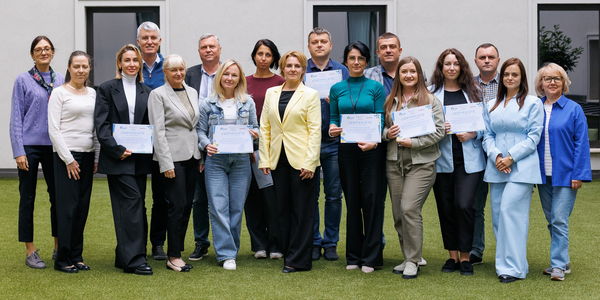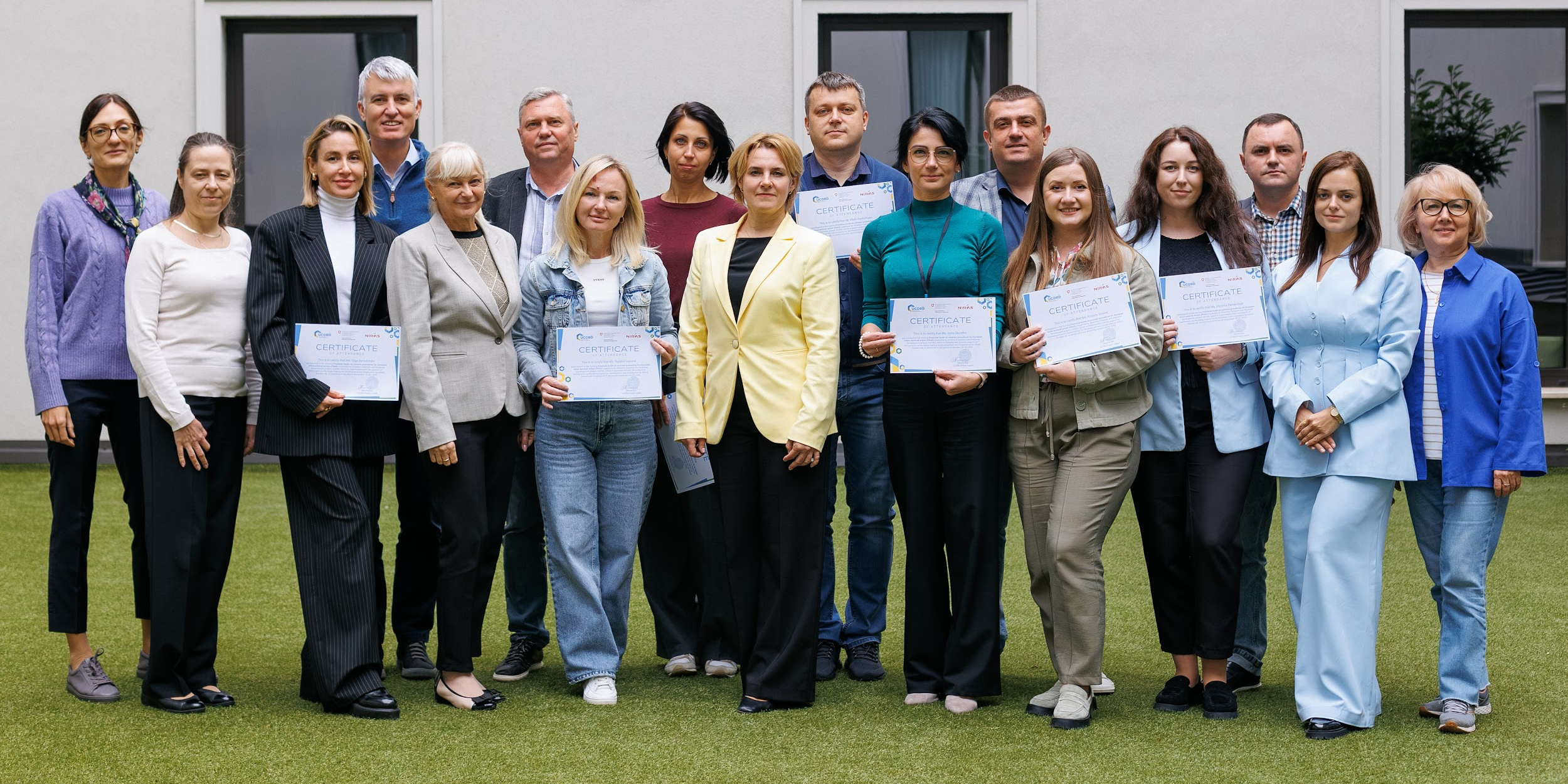PRAG in practice: Regional development agencies underwent intensive training on EU grant instruments
What unites the pilot ARDs of the UCORD project? The desire to develop using the best European practices. Representatives of the ARDs from the UCORD project’s six pilot regions underwent three days of training on EU contracting procedures (PRAG), which improved their understanding of EU grant instruments.
The PRAG training aimed to:
• to familiarise ARD employees with EU standards for grant evaluation and award procedures;
• to deepen understanding of different grant management models and types of competitions;
• to increase participants’ knowledge of the conditions for participating in the grant award process;
• to reveal the specifics of the project application evaluation process.
Dmytro Havka, UCORD Senior Grant Manager, emphasised in his welcoming speech:
‘The PRAG training organised by the UCORD project is designed to empower ARDs as drivers of change, strengthening partnerships between authorities, business, and civil society. Participants will gain the practical knowledge and skills needed to implement grant initiatives effectively and promote the sustainable development of their regions.’
The training was conducted by Gabriela Macoveiu, an international UCORD expert from Romania and a regional development manager with over 20 years’ experience in engineering, business, and EU programme management. She has extensive experience of implementing strategic projects and coordinates interdisciplinary teams, consults and conducts training for European institutions and agencies.
Olena Nyzhnyk, head of the Regional Development Component of the UCORD project, emphasised the trainer’s high level of expertise:
‘We have an extremely professional expert trainer who mentors pilot ARDs in the Sumy, Vinnytsia and Volyn regions. Her extensive experience and in-depth knowledge of regional development and grant management are invaluable in training our participants and helping to increase the expertise and capacity of ARDs.’
At the beginning of the training session, Ms Gabriela emphasised the ARD’s social mission:
‘The main mission of ARD is to provide services that are aimed at regional development and meet public needs. This work serves the interests of communities and regions, rather than those of the client or individual organisation exclusively. It is this social dimension of serving communities that fundamentally distinguishes ARD’s activities from those of other consultants.’
Participants completed four modules over three days, covering the entire grant process cycle from announcing the competition to signing the contract:
On the first day, the participants studied the fundamentals of PRAG, including its legal framework, objectives, principles, and models of grant management. They also learned about the grant award procedure, the nationality rule, and EU restrictive measures. Practical exercises helped consolidate their knowledge and improve their ability to identify participants in the grant process.
The second day was devoted to practical training. Participants learned how to organise grant competitions, covering topics such as types of announcements, publicity requirements and instructions for applicants. The IT tools (PADOR, PROSPECT and the Funding and Tenders Portal) that facilitate grant work were discussed separately. The evaluation process was also reviewed, including the composition of the committee, its operating principles, and the prevention of conflicts of interest.
On the third day, the focus was on evaluating applications and concluding grant contracts. Participants learned how to apply evaluation criteria and matrices, how to prepare final evaluation reports and how to understand the conditions for filing appeals. The day concluded with an analysis of the structure of a standard contract, providing insight into working with real documents.
After three days of working with the ARD representatives, trainer Gabriela Macoveiu summarised:
‘I urge you to become true partners with your stakeholders. You have unique, first-hand knowledge and can provide expert support. Whether your partners understand the technical requirements and feel the philosophy of the project is up to you. Your task is to help them integrate into the system, recognise its value and take advantage of the development opportunities.’
Maryna Bryl, UCORD project leader, emphasised:
‘The UCORD project will continue to support the ARD in developing its capacity to work with European financial mechanisms. Thanks to this training, ARD representatives have gained a deeper understanding of European procedures, strengthened their professional skills, and become better prepared to participate in international programmes.’
The Swiss-Ukrainian project ‘Ukraine’s Cohesion and Regional Development’, UCORD, is implemented with the support of Switzerland by NIRAS Sweden AB.

Source:
Проєкт Ucord

22 January 2026
Стартував відбір громад до другої черги проєкту «Рух без бар’єрів»
Стартував відбір громад до другої черги проєкту...
Міністерство розвитку громад та територій України розпочинає прийом пропозицій від громад для участі другій черзі...
22 January 2026
«У кожній хаті свій КРЕДЕНС»: як громади об’єднуються навколо цифрової спадщини
«У кожній хаті свій КРЕДЕНС»: як громади...
Протягом 2025 року три громади-партнерки – Горохівська та Рожищенська громади Волинської області, а також...
21 January 2026
UAH 32 million from community budget – for defence innovations: Experience of Khmelnytskyi
UAH 32 million from community budget – for...
Local self-government during wartime involves more than just maintaining stability at the rear; it also contributes...
21 January 2026
Myrhorod expands cooperation with international partners in healthcare
Myrhorod expands cooperation with international...
The Myrhorod City Council has signed a Memorandum of Cooperation with the International Organisation for Migration...